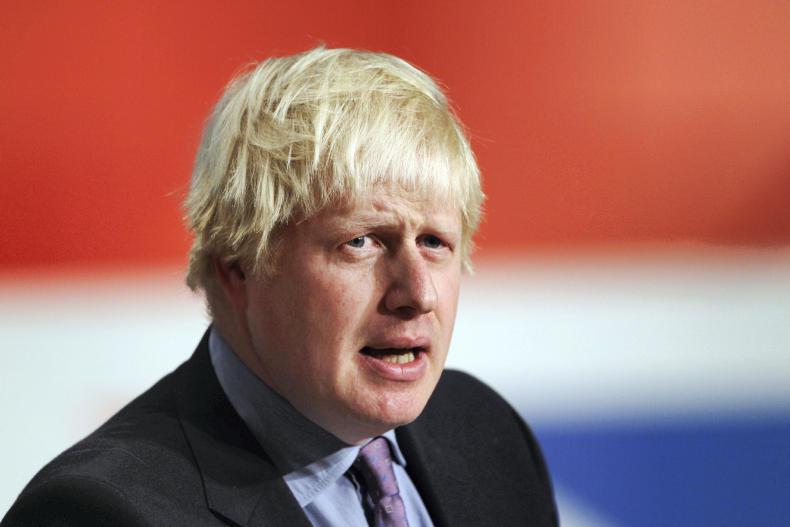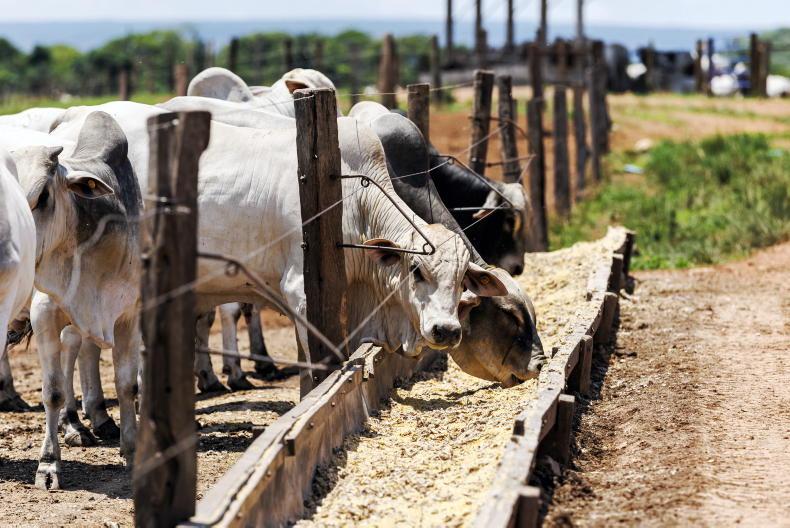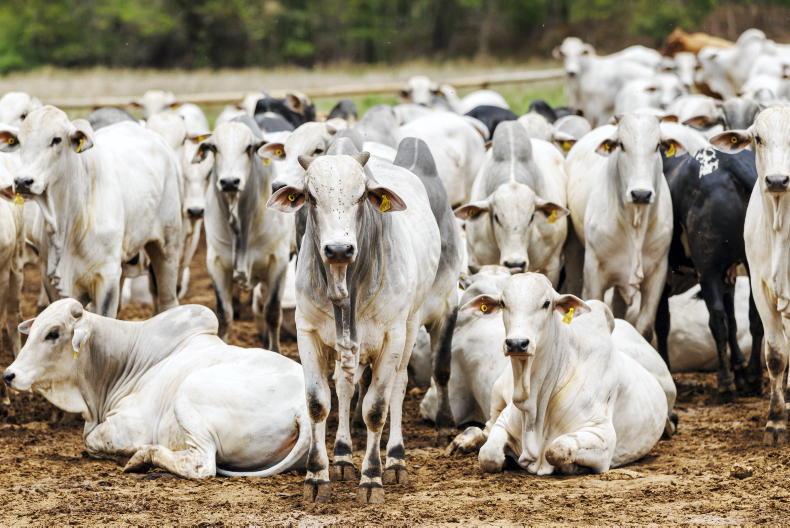What is being seen as the first week of real negotiations between the EU and UK kicks off in Brussels on Monday or Tuesday.
The first problem is that it isn’t certain yet on what day it will be.
Monday is a bank holiday in the UK and there is disquiet on the UK side that that they would have to forgo that.
Their view is that the last round wrapped up early on a Thursday because the following day was a holiday in Belgium.
Anyhow, whether it is Monday or Tuesday, the fault lines between the EU and UK positions are becoming clear and it is difficult to see how they can be reconciled without major concessions by either side.
Papers
All of the position papers published so far indicate that the UK wants to retain all of the present trading arrangements while at the same time following the three big ideas of the Brexit ideology.
These are taking back control of the borders, meaning an end to the freedom of movement of people with the EU, making its own trade deals outside the EU framework and withdrawal of jurisdiction of the European Court of Justice (ECJ).

Boris Johnson has moved from his earlier position of suggesting that the EU go and whistle
On the ECJ, the UK position paper did demonstrate some flexibility in thinking by tabling the Moldova option, which is arbitration followed by referral to the ECJ for final ruling.
Even on the thorny issue of the Brexit bill, UK foreign secretary Boris Johnson has moved from his earlier position of suggesting that the EU go and whistle to a recognition that there would be a cost that had to be met.
The Brexit bill is one of the EU red-line issues, so it is possible to visualise some movement on it and the ECJ issue, despite murmurings of a reluctance by the UK to provide its methodology for calculating what it has to pay.
Trade
However, finding consensus on the issue of UK freedom to make trade deals and people movement remains incompatible with the stated position of both the EU and UK not to have a hard border on the island of Ireland.
The UK position paper was idealistic in stating that it would not be responsible for imposing a border of any sort, never mind a hard border.
Just how an open Irish border with an equally open Ireland to citizens of the other 26 members of the EU fits is impossible to explain. It could be claimed that employment records and registration for social services would act as a control.
While that may be, in turn that would create a huge undocumented economy, similar to what has existed in the US for several decades. Low-paid jobs would attract workers who would operate outside the system without the protection of employment law and, more importantly from a UK perspective, be completely unknown to the authorities.
That would create a huge undocumented economy, similar to what has existed in the US
At least the present official entry system provides a measure of control with its checking of passports at the point of entry. Therefore, the UK position paper on the Irish border arguably puts it in a position with even less control on the movement of people into the UK.
Back door
It is a reverse position with the movement of goods into the EU from the UK without a border control on the island of Ireland.
If the UK is trading with other third countries, then it is impossible to visualise the EU allowing the Republic of Ireland to be a back door into the other 26 member states for products.
It is also difficult to visualise how a fudge can be found that satisfies both parties on something as definitive as being part of the customs union.
Even in what the UK considers an ideal arrangement, a comprehensive free-trade agreement (FTA), there remains the issue of border controls.
The Canadian-EU agreement, often presented as the ideal FTA, still has border controls and strict quota allocation for sensitive agricultural products such as beef and dairy. Adherence to agreed standards has to be demonstrated and quotas complied with.
Also, in this “ideal” outcome, the cost of doing business was estimated to increase by 5% in work carried out on behalf of the UK regional agriculture departments.
Many positions have been stated on the EU and UK sides, but negotiations are only just beginning.
Read more
Full coverage: Brexit
What is being seen as the first week of real negotiations between the EU and UK kicks off in Brussels on Monday or Tuesday.
The first problem is that it isn’t certain yet on what day it will be.
Monday is a bank holiday in the UK and there is disquiet on the UK side that that they would have to forgo that.
Their view is that the last round wrapped up early on a Thursday because the following day was a holiday in Belgium.
Anyhow, whether it is Monday or Tuesday, the fault lines between the EU and UK positions are becoming clear and it is difficult to see how they can be reconciled without major concessions by either side.
Papers
All of the position papers published so far indicate that the UK wants to retain all of the present trading arrangements while at the same time following the three big ideas of the Brexit ideology.
These are taking back control of the borders, meaning an end to the freedom of movement of people with the EU, making its own trade deals outside the EU framework and withdrawal of jurisdiction of the European Court of Justice (ECJ).

Boris Johnson has moved from his earlier position of suggesting that the EU go and whistle
On the ECJ, the UK position paper did demonstrate some flexibility in thinking by tabling the Moldova option, which is arbitration followed by referral to the ECJ for final ruling.
Even on the thorny issue of the Brexit bill, UK foreign secretary Boris Johnson has moved from his earlier position of suggesting that the EU go and whistle to a recognition that there would be a cost that had to be met.
The Brexit bill is one of the EU red-line issues, so it is possible to visualise some movement on it and the ECJ issue, despite murmurings of a reluctance by the UK to provide its methodology for calculating what it has to pay.
Trade
However, finding consensus on the issue of UK freedom to make trade deals and people movement remains incompatible with the stated position of both the EU and UK not to have a hard border on the island of Ireland.
The UK position paper was idealistic in stating that it would not be responsible for imposing a border of any sort, never mind a hard border.
Just how an open Irish border with an equally open Ireland to citizens of the other 26 members of the EU fits is impossible to explain. It could be claimed that employment records and registration for social services would act as a control.
While that may be, in turn that would create a huge undocumented economy, similar to what has existed in the US for several decades. Low-paid jobs would attract workers who would operate outside the system without the protection of employment law and, more importantly from a UK perspective, be completely unknown to the authorities.
That would create a huge undocumented economy, similar to what has existed in the US
At least the present official entry system provides a measure of control with its checking of passports at the point of entry. Therefore, the UK position paper on the Irish border arguably puts it in a position with even less control on the movement of people into the UK.
Back door
It is a reverse position with the movement of goods into the EU from the UK without a border control on the island of Ireland.
If the UK is trading with other third countries, then it is impossible to visualise the EU allowing the Republic of Ireland to be a back door into the other 26 member states for products.
It is also difficult to visualise how a fudge can be found that satisfies both parties on something as definitive as being part of the customs union.
Even in what the UK considers an ideal arrangement, a comprehensive free-trade agreement (FTA), there remains the issue of border controls.
The Canadian-EU agreement, often presented as the ideal FTA, still has border controls and strict quota allocation for sensitive agricultural products such as beef and dairy. Adherence to agreed standards has to be demonstrated and quotas complied with.
Also, in this “ideal” outcome, the cost of doing business was estimated to increase by 5% in work carried out on behalf of the UK regional agriculture departments.
Many positions have been stated on the EU and UK sides, but negotiations are only just beginning.
Read more
Full coverage: Brexit










SHARING OPTIONS